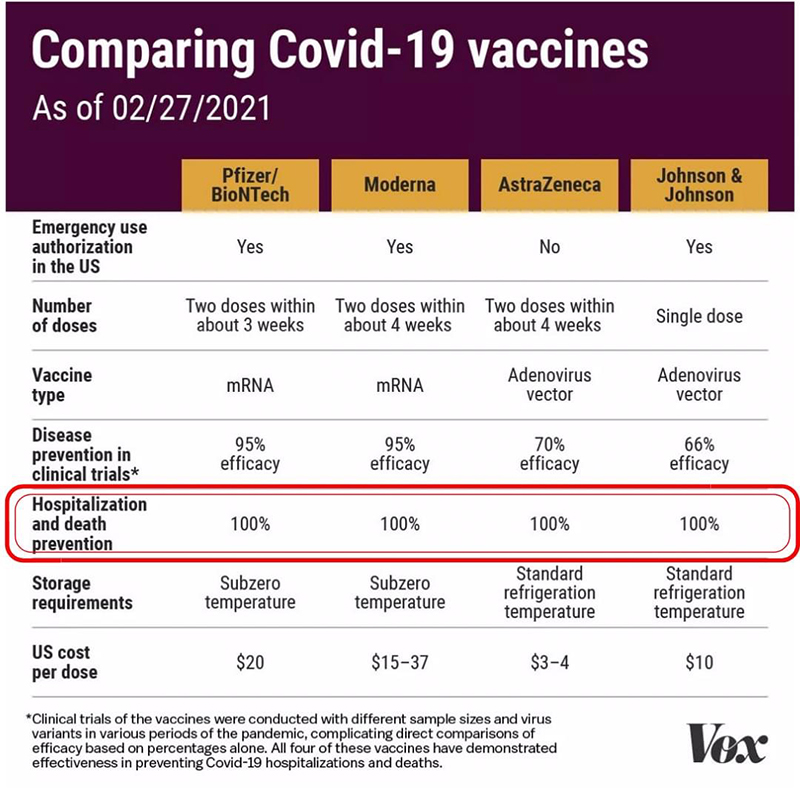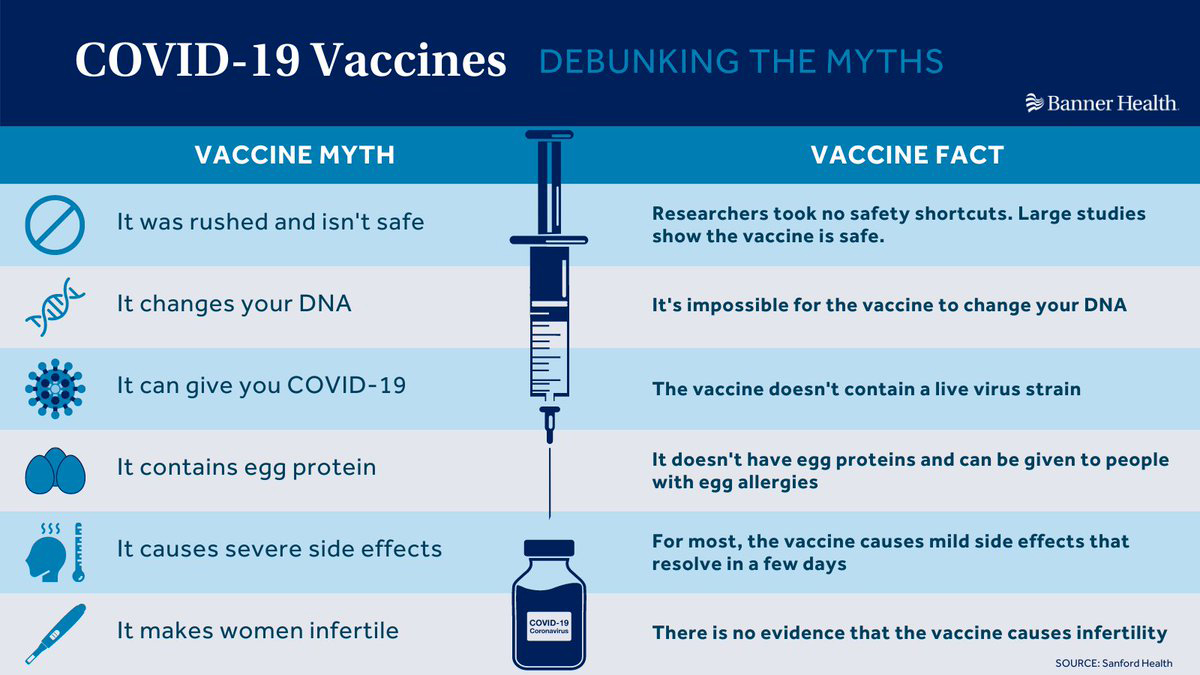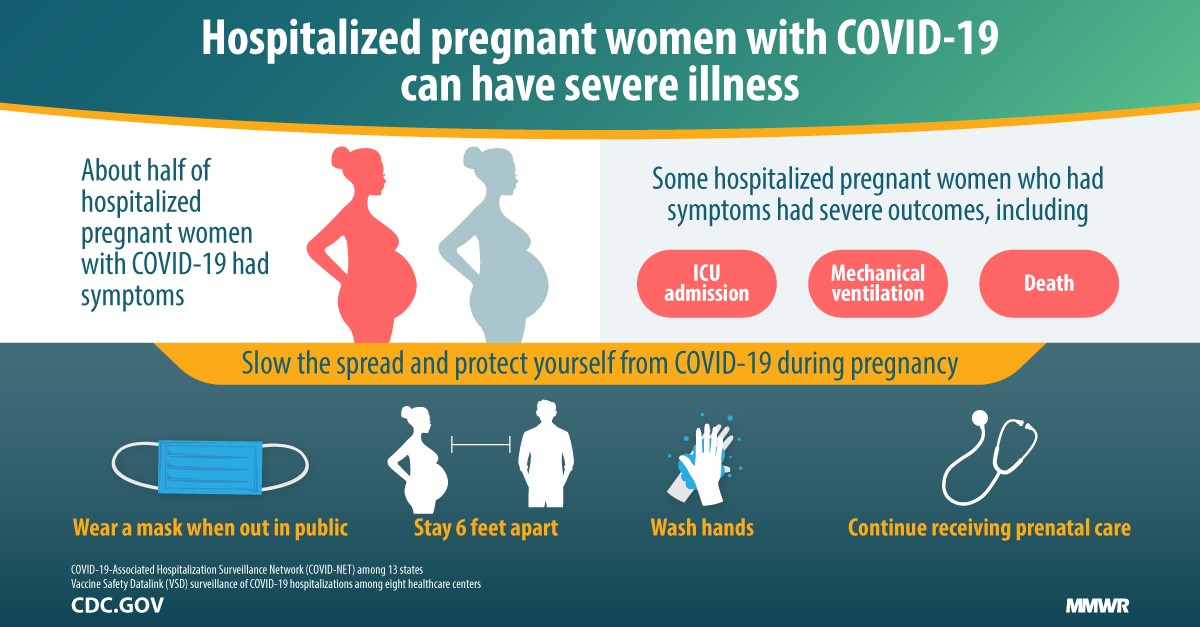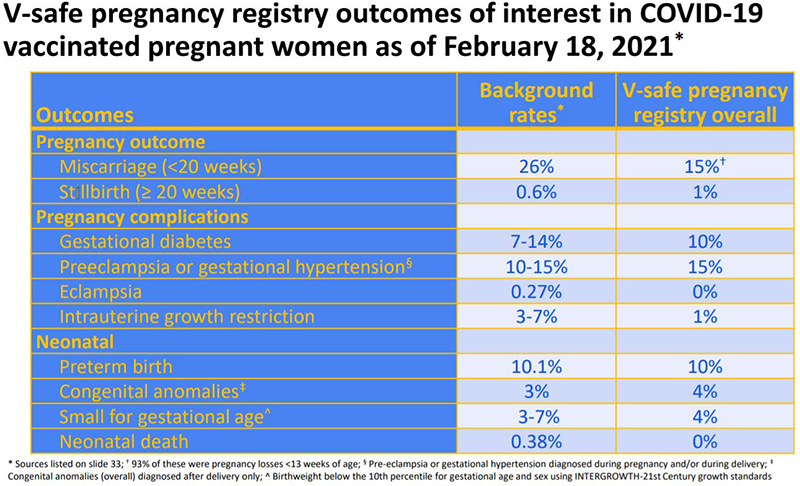COVID-19 (Also Called SARS-CoV-2 or COVID or Coronavirus) in Pregnancy
Eva Pressman, M.D., chair of the department of Obstetrics and Gynecology, recently answered common questions about COVID boosters in pregnancy. She discussed safety, efficacy, timing of the booster dose, breastfeeding following a booster, and more. She also previously held an information session with the Department of Imaging to address concerns about the COVID vaccine in women who are pregnant, breastfeeding or are concerned about fertility impacts. See a summary of the discussion, grouped by topic.
Also, watch as Tracy Webber from the Midwifery team and Loralei Thornburg from the High-risk OB team discuss COVID & COVID Vaccines in pregnancy.
COVID-19 (also called SARS-CoV-2) is a coronavirus that causes an upper respiratory illness. It is transmitted from person to person through respiratory exposures.
Symptoms of COVID can be highly variable, and some people may not have any symptoms. Symptoms typically appear 2-14 days after exposure to the virus and can include:
- Fever or chills
- Cough
- Shortness of breath or difficulty breathing
- Fatigue
- Muscle or body aches
- Headache
- New loss of taste or smell
- Sore throat
- Congestion or runny nose
- Nausea or vomiting
- Diarrhea
Note: This list does not include all possible symptoms.
All people, but especially those that are pregnant should be vaccinated to help decrease the risk of contracting COVID, as well as decrease the risk of complications. Although vaccination will not prevent all infections, it has been shown to decrease the risk of severe complications (hospitalizations, death) compared to those who are not vaccinated. Even with vaccination, infection can occur, so continuing to mask and socially distance remains important.
COVID-19 is a serious risk in pregnancy. People who have severe underlying medical conditions like heart or lung disease, sickle cell disease, or diabetes seem to be at higher risk for developing more serious complications from COVID-19 illness.
Pregnancy is a high-risk condition for the development of more severe COVID symptoms and increases the risk of hospitalization and complications in those that get COVID-19. If you get COVID-19, and develop severe symptoms, you may need to be admitted and/or delivered early. You can learn lots more about COVID in pregnancy and lactation at the CDC website.
If you do get COVID-19 while you are pregnant— we recommend that you receive the SAME therapies as those used to treat patients who are not pregnant. This could include a variety of therapies depending on how sick you are, and if you develop complications. To date other therapies that have been used to treat non-pregnant adults have been recommended to be used in pregnant people with COVID 19 as well. These medications may include azithromycin, dexamethasone, hydroxychloroquine, convalescent plasma, antivirals (remdesivir), monoclonal antibodies (Regeneron) and interferons.
When to Seek Emergency Medical Attention
Look for emergency warning signs* for COVID-19. If someone is showing any of these signs, seek emergency medical care immediately:
- Trouble breathing
- Persistent pain or pressure in the chest
- New confusion
- Inability to wake or stay awake
- Bluish lips or face
*This list is not all possible symptoms. Please call your primary medical provider for any other symptoms that are severe or concerning to you.
Call 911 or call ahead to your local emergency facility: Notify the operator that you are seeking care for someone who has or may have COVID-19.
Learn more about COVID from the CDC Symptoms of Coronavirus page and from the URMC coronavirus site. The University of Rochester has also made a number of changes to our visitation and policies to help keep patients safe. Also see the Strong Memorial Hospital Obstetrics service guidelines for visitors.
Please call your primary care physician or utilize the NY State testing centers. Our office cannot order this testing for you.
Yes. All patients are tested for COVID-19 before admission to the hospital. Our office will arrange this for you. If you come into the hospital in labor or for a planned admission, we will test you on arrival. If you test positive, learn more about the restriction for patients with COVID on the obstetrical service. Please note these are both subject to change at any time depending on rates of COVID in the community.
Learn more about the current visitation rules on the UR Medicine Coronavirus site. Please note these are both subject to change at any time depending on rates of COVID in the community.
A COVID shot is a vaccination to the COVID-19 which is caused by the SARS-CoV-2 virus.
- These are new vaccines, and there are several different versions.
- Vaccination represents the most promising strategy for combating COVID-19.
- These vaccines DO NOT contain live virus.
- You CANNOT get COVID from the vaccination.
- You can view the full patient information sheet for the COVID Pfizer-BioNTech vaccine, Moderna vaccine, and Johnson & Johnson vaccine.
Members of our staff—some of the recently vaccinated after overcoming initial hesitancy—discuss why they decided to get the shot and why they are glad they did.
Eva Pressman, M.D., Chair of Obstetrics and Gynecology, discusses why the vaccines are safe for pregnant and lactating women, and the risks to both pregnant people and babies of foregoing the shot.
Pregnancy is a high-risk condition for developing a severe form of COVID-19 disease, with an increased risk for hospitalization, complications and death. More than half of pregnant individuals also fall into another high-priority category, including frontline workers and those with underlying medical conditions. If you get COVID-19 in pregnancy, and develop severe symptoms, you may need to be admitted and/or delivered early.
Since the theoretical risk of fetal harm from mRNA vaccines is very low, the benefits from vaccination likely greatly outweigh these risks in anyone exposed to COVID-19 at work or at home.
The American college of Obstetrics and Gynecology and the Society of Maternal Medicine have more information and similarly recommend that for pregnant individuals, the decision to vaccinate must be left to each patient in consult with their trusted clinician, as well as notes the high risk nature of COVID infection in pregnancy. Learn more about vaccines on the CDC website as well.
Several national leadership organizations in pregnancy and neonatal care including - SMFM, AWHONN, NPWH, and ACNM have put out joint recommendations about COVID-19 and COVID vaccinations in pregnancy, with a great deal of more information about the risks of COVID-19 in pregnancy, and a discussion of the vaccine in pregnancy and lactation. These groups recommend that healthcare workers and others who are considered prioritized for vaccination, such as teachers or first responders, be offered the vaccine even if they pregnant or lactating, and discuss the options with their provider.
There is also no current information about the safety of the new COVID-19 vaccines during breastfeeding. Based upon the limited information that we have; we believe it will be safe for use during breastfeeding. The URMC lactation service has more information about COVID and lactation.
These decisions are complicated, and we understand that you may wish to speak to someone about them directly. Please talk to your obstetrical provider if you would like more information or help with making this decision. The MotherToBaby service has put together more information on vaccination and breastfeeding. They are also happy to speak with you as well, by text, chat, or phone.
Also see Doctors Say It's Safe for Pregnant Women to Take COVID-19 Vaccine, where Dr. Eva Pressman talks with 13 WHAM about the vaccine.
If you do choose to get the vaccine while pregnant or lactating, there is a national registry through the University of Washington to help us learn about the outcomes and safety of the COVID vaccine in pregnancy that you can join and well as one through MotherToBaby. The CDC has a large registry as well—V-SAFE. V-SAFE is a smartphone-based tool that uses text messaging and web surveys to provide personalized health check-ins after you receive a COVID-19 vaccine. Through V-SAFE, you can quickly tell CDC if you have any side effects after getting the COVID-19 vaccine.
Based on the initial V-SAFE data for pregnancy, over 30,000 patient have chosen to receive the COVID vaccine in pregnancy as of 2.16.21. The registry data suggest that the COVID vaccine appears to be very safe in pregnancy, with similar or lower rates of pregnancy complications in those that have been vaccinated compared to those in the general population in the United States.
Pregnancy is a high-risk condition for developing a severe form of COVID-19 disease, and most data suggest that the vaccine is very safe in pregnancy. The American college of Obstetrics and Gynecology and the Society of Maternal Medicine have more information and similarly recommend that for pregnant individuals, the decision to vaccinate must be left to each patient in consult with their trusted clinician, as well as notes the high risk nature of COVID infection in pregnancy.
There are three vaccinations currently on the market to fight COVID-19: COVID Pfizer-BioNTech vaccine, Moderna vaccine, and Johnson & Johnson vaccine. There are no specific data that recommend one the vaccinations over the others, and they were testing at slightly different times, with different populations and sample sizes, limiting our ability to compare them. While there are pros and cons to each—all appear to be safe and effective, and most importantly, all appear to prevent hospitalization and death in 100% of those people were vaccinated. If you are choosing to receive the COVID vaccine, it is currently recommended that you get the product that is offered/available, given that the data suggest that all vaccinations currently available prevent hospitalization and death (which are the most serious concerns when a person develops COVID during pregnancy).

Source: https://www.vox.com/22307585/covid-19-vaccine-johnson-and-johnson-efficacy
Thank you for thinking of how we can learn the most about COVID Vaccination and COVID disease during pregnancy & lactation! We have listed a few studies that have come to our attention on COVID and COVID vaccination in pregnancy. There may be others as well.
For Studies on COVID Vaccines During Pregnancy and Lactation
- National registry to help us learn about the outcomes and safety of COVID vaccine through the University of Washington.
- COVID vaccine registry through MotherToBaby.
- CDC COVID vaccine registry—V-SAFE. V-SAFE is a smartphone-based tool that uses text messaging and web surveys to provide personalized health check-ins after you receive a COVID-19 vaccine. Through V-SAFE, you can quickly tell CDC if you have any side effects after getting the COVID-19 vaccine.
For Studies on COVID Exposure or Infection During Pregnancy or While Lactating
If you do have COVID while you are pregnant or lactating, please consider signing up for one of the COVID registries or studies.
Angela Branche, M.D., co-director of the vaccine treatment and evaluation unit, discusses the science behind the vaccines, why they are safe and effective, and the importance of getting your shot.
There is a lot of information about there about COVID vaccine safety, and a lot of opinions, it can be hard to know what to believe, and what to do.
The CDC COVID vaccine myths and information page has a lot of information on frequent questions and concerns about COVID vaccination, and is a great place to learn more from scientists with the lasted information.
From the best available data, COVID vaccine is effective in preventing death and severe disease when a person gets exposed to the COVID virus. The risks of hospitalization and other complications are increased in pregnant people that get COVID, making them at increased risk for these complications. The COVID vaccine CANNOT cause COVID infection. There is NO data that COVID vaccine can harm the developing fetus, or cause COVID, or result in infertility.

References:
https://news.sanfordhealth.org/coronavirus-disease-2019-covid-19/vaccine-myths-vs-facts/
https://www.bannerhealth.com/staying-well/health-and-wellness/wellness/covid
Based on the initial V-SAFE data for pregnancy, over 30,000 patient have chosen to receive the COVID vaccine in pregnancy as of February 16, 2021. The registry data suggest that the COVID vaccine appears to be very safe in pregnancy, with similar or lower rates of pregnancy complications in those that have been vaccinated compared to those in the general population in the United States.
Some trusted place to get COVID vaccine information about safety, and how to get the vaccine are from the CDC COVID-19 Vaccine page, the URMC Coronavirus page, and from the NY State DOH Vaccine site.
These decisions are complicated, and we understand that you may wish to speak to someone about them directly. Please talk to your obstetrical provider if you would like more information or help with making this decision.
NY has issued state health care worker mandates regarding COVID Vaccination. The best available data suggest these vaccines are Safe and Effective in both patients who are currently pregnant, lactating, as well as those working toward conception.
In fact, research and clinical experience has shown that even here in Rochester, pregnant patients are susceptible to COVID and we have had unfortunately had a number of cases of pregnant patients with COVID needing ICU care and delivery at very early gestational ages.
For lactating parents, there is no evidence that receiving the COVID-19 vaccine is harmful to the breastfeeding parent or the nursing infant. Additionally, there are benefits for nursing infants who will receive COVID-19 antibodies from their parents' breastmilk, giving them an additional layer of protection.
Given the safety of the vaccine and the recommendations from the CDC, ACOG, ASRM, SMFM, AAP that all patients receive these vaccines, even when pregnant, we do not offer any exemptions for any patients who are currently pregnant or are planning to be so in the near future. In direct contrast, we strongly recommend all patients who are currently pregnant (regardless of gestational age) or who are planning pregnancy, go as soon as possible to get their vaccine for their own safety as well as for their pregnancy and their community.
There is NO data that the COVID vaccine impacts fertility. There have has been many myths about fertility and the COVID vaccine—Early on in the vaccine’s development, it was thought that one of the proteins on the surface of the COVID virus for which the vaccines build an immune response was similar to one of the proteins that embryos use to implant in the uterus early in pregnancy. This has now been shown NOT to be the case. The American Society of Reproductive Medicine—ASRM—the national fertility society (those who help couples struggling with infertility to achieve pregnancy) recommends that people receive the COVID vaccine in order to minimize the risks to themselves and their future pregnancy. As pregnancy and therapies to become pregnant can put patients at increased risk for COVID complications, it is important to get vaccinated to prevent these complications and have a safe and healthy pregnancy.

